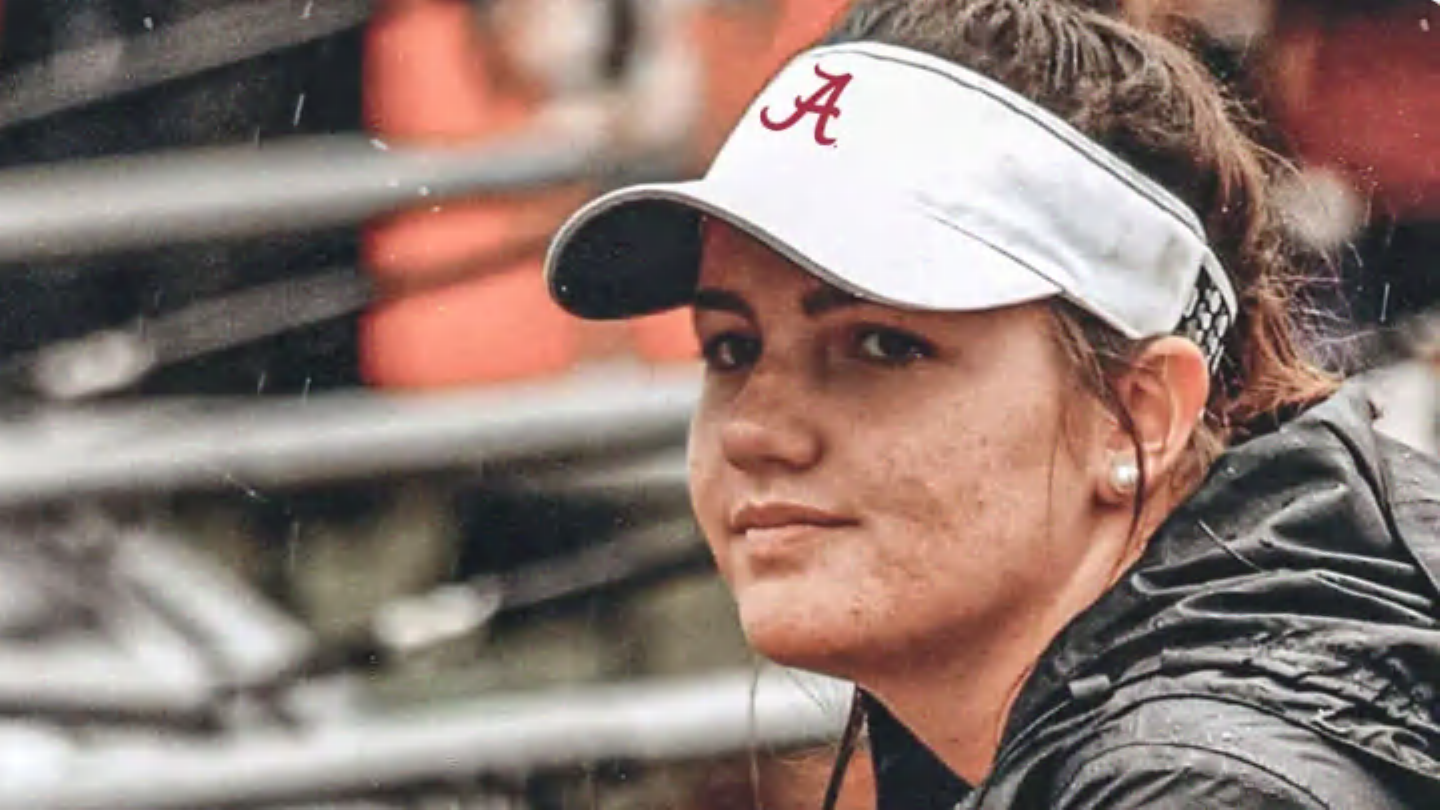Jegede's online college breaks new ground in traditional medicine
In a groundbreaking move that promises to revolutionise the field of traditional medicine, an Associate Professor at the Institute of African Studies, University of Ibadan, Dr Jegede Obafemi, has launched an online School of Traditional African Medicine called Oduduwa College of Yoruba Medicine.
The institution aims to standardize and promote traditional African medicine, providing a platform for students and practitioners to learn and share knowledge. With a focus on excellence, innovation, and cultural preservation, Jegede’s school is poised to make a significant impact on the healthcare landscape in Africa and beyond. By harnessing the power of traditional knowledge and modern technology, the school is set to become a hub for traditional medicine education, research, and practice. As the world increasingly looks to alternative forms of medicine, this initiative is timely and has the potential to benefit millions of people.
My interest in Traditional African Medicine was inspired by the need to situate Africa in the global space. The world treats Africa as if she does not exist. I therefore ask, what can Africa offer to the world now that everything has been taken away? I just conjecture that it may be in the area of health.
During my Masters Degree programme at the Institute of African Studies, University of Ibadan, I decided to research into areas of health. I started an enterprising ethnographic investigation into the health and medicine of the Yoruba of Southwestern Nigeria. I ventured into this with a high degree of skepticism. In fact, I thought I would be killed because my brain had earlier been fed with all sorts of evil performed by traditionalists, the practice of their profession particularly the medical profession. Increased curiosity further pushed me to dig deep and that I may quiz the practice more deeply I enrolled for a Doctoral degree in traditional medicine. What I saw was entirely different from the stories that I had. I realised that these people were badly misrepresented and misunderstood. Western science, western education has rubbished the wisdom of our ancestors.
Apart from my healing practice, teaching and research, I have developed expertise in the teaching of practitioners so as to make them more professional.
I was inspired by the acuteness of unemployment which I have come to see is the reason for the Nigerian predicament. Our educational system as it is does not enable people to go to school to be self employed and even be an employer of labour. I seek the need to interface education and industry in Africa. I seek to de-emphasise rote memorisation and lecture-based learning, that is lacking in hand-on experience and real-world application. In doing this we harp on apprenticeship methodology.
The World Health Organisation, since 1978 has advised nations to consider the integration of traditional medicine with bio-medicine, but Nigeria has been dragging her feet, even passing the bill on traditional medicine is suffering setbacks. Traditional medicine will be able to contribute effectively to modern health care systems when the bill is passed. Traditional medicine will be able to contribute to the modern health care system when people are trained. For me one of the inhibiting factors is because most practitioners are not well trained and so they cannot adequately engage modern healthcare practitioners.
The main goal is to empower the people, especially the youth by shifting their mindsets from limitations to possibilities, fostering a proactive, entrepreneurial, and innovative spirit inherent in the knowledge of Yoruba Medicine.
The curriculum is holistic, covering every area of traditional medicine so as to make sure we achieve our goal. We teach about theory so as to enable students to engage people of diverse categories to understand traditional medicine and to demystify the practice by subjecting it to simple scientific analysis hinged on the wisdom of our ancestors. We also take students through knowledge of how to produce traditional medicine, in doing this we locate and situate the method and the methodology. How to situate products within the global space, plant propagation and marketing, the leku-leja phenomenon, human anatomy and physiology, how to formulate and package traditional medicine products etc. There is as well as strong emphasis on ethical issues in traditional African medicine.
Ensuring quality and authenticity is paramount. To achieve this, we employ a multi-faceted approach: We are recruiting expert faculty members who are renowned scholars and practitioners with international reputations
Hand-on training with experienced mentors. 3-months placements for internships with reputable organisations in Nigeria, Ghana and Burkina Faso. Attendance and practical experience are mandatory for certification.
This rigourous approach ensures our graduates are equipped with authentic, high-quality traditional African medicine practices, setting a new standard for the industry.
The college hopes to attract three categories of students: Secondary School Certificate Young boys and girls who will be painstakingly taken through an 18-month physical training after which they will be offered a Professional Diploma in Yoruba Medicine (PDYM). This certificate is terminal though. This will be a physical class only.
We are also looking for experienced practitioners who would like to upgrade their practice. This is a six month online programme. Internship is optional.
We are also looking for retired people who do not want to be idle but want to keep earning after retirement. This is another six month online programme including a two month internship and the internship is physical.
To reduce over-medicalisation, we aim to organize periodic seminars and colloquium, creating a platform for people to learn about indigenous healing techniques and traditional methods for treating specific illnesses.
We are already putting in place a scheme that will enable outstanding students to win scholarships and we will open students to opportunities the global space has to offer to practitioners of traditional medicine.
The most significant benefit of traditional African Medicine is that it is appropriate, available and affordable and it is potent. Already World Health Organisation (WHO) affirms that 80% of health seekers go to traditional medicine.
The integration of traditional medicine to modern medicine can be possible when the bill on traditional medicine is passed into law. The question of training is so compelling, only trained people can engage bio-medics, meaningfully the basis for which there could be integration.
While some may be skeptical about traditional medicine, my research and experience have shown its potential benefits. I am open to constructive criticism and dialogue, believing that respectful exchange can foster greater understanding and this can lead to better healthcare outcomes.
Traditional African Medicine is the future, and its successes are undeniable. Personally, I have experienced the power firsthand, I overcame diabetes using native medicine and I am now medication-free. Another breakthrough I have made is in analgesic. Many people are addicted to painkillers, which can lead to kidney and liver damage. My innovative solution? A topical analgesic that you can bathe with, eliminating the need for oral painkillers. This discovery has the potential to revolutionize pain management and reduce addiction. But that is not all. This natural remedy also has preventive properties that help protect against stroke and paralysis. By harnessing the values of traditional medicine, we can take a proactive approach to our health and wellbeing, reducing the risk of debilitating conditions and improving our quality of life.
Traditional African medicine will gain ground. Already, it is the medicine of the people.
I envision traditional African medicine evolving in the future through integration with modern healthcare, research, and technology. Our school will play a pivotal role in this evolution by documenting and standardising traditional practices, preserving knowledge and ensuring consistency through standard practice of traditional medicine.
Our college will serve as a hub for innovation, education, and advancement in traditional medicine, ultimately contributing to improved healthcare outcomes and cultural preservation.
Traditional African medicine faces several challenges, including:
Lack of legal framework: Delayed passage of the Traditional Medicine Bill in Nigeria hinders practitioners ability to operate within the law.
Unfortunately, traditional medicine faces stigma due to widespread misconceptions and negative perceptions. This not only limits the adoption but also deprives people of its potential benefits, creating a barrier to embracing it as a viable solution. By promoting awareness and education, we can work to dispel these misconceptions and unlock the full potentials of traditional medicine.
There is also the challenge of the proliferation of associations. Multiple traditional African medicine association, each claiming to be the best creating confusion and fragmentation
Quite a number of the practitioners rely mainly on inherited knowledge, without formal training leading to ethical and practice inconsistencies.
To overcome these challenges, we plan to work in collaboration with other agencies, we will advocate for policy change so as to see to the passage of the Traditional Medicine Bill.
We have designed formal training programs so as to provide structured education for practitioners and would be practitioners.
We will be midwives and as well advocate for the need for well structured ethical guidelines for the practice of traditional medicine so that practitioners are ethically grounded.
By addressing these challenges, we will promote the growth and recognition of traditional African medicine, ensuring its safe and effective practice.
Like every other thing, technology is critical to the promotion of traditional African medicine. Globally there is a huge demand for traditional medicine but the demand is greater than the supply majorly because of technological deficit.
Our college will be affiliated with machine fabricators or machine makers so that students will leverage technology in drug production and packaging. We will do this by connecting students with fabricators from the beginning of their training.
The internship is designed to connect students with agencies and industries where technology is crucial to their drug production, So from the beginning, the interface of technology and traditional African medicine particularly in modern times is central to the agenda of the college.
A major challenge facing traditional medicine in Nigeria is the lack of effective regulatory framework. Without clear oversight, the industry remains disjointed, eroding confidence among genuine professionals and aspiring practitioners. However, with proper regulation and acceptance, traditional medicine can unlock a wealth of opportunities. It can:
Foster a knowledge system generating a new generation of skilled practitioners and graduating students who will drive industrialization, creating jobs and economic growth, promote environmental preservation and encouraging sustainable practices, and thereby contributing to economic development.
By harnessing the potential of traditional medicine, Nigeria can unlock a brighter future for its people.
To measure the impact and effectiveness of our College, we plan to track student outcomes by monitoring graduation rates, capacity of graduates of our college to be self employed and develop professionalism in traditional medicine.
Conduct alumni surveys by gathering feedback on the relevance of and effectiveness of our programmes.
Evaluate the research output by assessing the quality and impact of research publications and projects.
We will develop key performance indicators (KPIs) establishing metrics to track progress toward our mission and goals.
Our college will foster a culture of innovation by encouraging entrepreneurship.
By regularly assessing our impact and effectiveness, we can ensure our College of Yoruba Medicine remains a leader in traditional medicine education and contributes to the well-being of our communities.
My vision for traditional African medicine is one of integration, innovation, and global recognition. I see a future where traditional medicine is valued and respected alongside modern medicine. I envision economic empowerment as traditional African medicine will contribute to economic growth of Africa. Encouraging shared knowledge on traditional African medicine and enabling best practices worldwide.
Our college with special interest in Yoruba medicine will contribute to the future by documenting and preserving cultural heritage. Developing new treatments and therapies, educating the next generation and pushing and sharing the benefits of Yoruba medicine with the world.
We are putting in place an arrangement with the National Agency for Food and Drug Administration (NAFDAC) and Standard Organisation of Nigeria (SON). We will be working with them in the area of quality control, drug production, validation and authentication. In Nigeria, our College shall work with relevant government agencies to enable validation and accreditation of our certificate. We desire that they supervise and oversee our activities. We would like to pursue collaborative engagements with the West African Health Organisation (WAHO). We are seeking strategic partnerships with international agencies who share our vision for globalising traditional medicine. By collaborating, we will unlock the full potential of traditional medicine, driving innovation and improving global health outcomes. Together, we can harness the power of traditional knowledge to benefit humanity worldwide.
Policymakers, healthcare professionals, and reputed practitioners of traditional medicine will serve as valuable resource persons for our college, providing insights and expertise to enhance our programmes.
We will engage healthcare professionals through regular discussions, updates, and consultations to build strong relationships and garner support for our initiatives.
To reach the general public, we plan to utilise media platforms especially radio stations, hosting discussion and updates about our programs to keep them informed and engaged.
Through these efforts, we aim to foster a collaborative environment that promotes the growth and success of our college, while also contributing to the advancement of traditional medicine.
The Oduduwa College of Yoruba Medicine is a beacon of cultural heritage and traditional knowledge, blending ancient wisdom with modern innovation to improve global health outcomes.
We preserve and promote the rich cultural heritage of Yoruba medicine while integrating modern research and technology to enhance its efficacy and reach.
Through global collaboration and knowledge sharing, we aim to foster a new era of holistic health and well-being benefiting people worldwide.
Our mission is to build bridges between cultures, advance traditional medicine and contribute to a healthier, more compassionate world.
You may also like...
Diddy's Legal Troubles & Racketeering Trial

Music mogul Sean 'Diddy' Combs was acquitted of sex trafficking and racketeering charges but convicted on transportation...
Thomas Partey Faces Rape & Sexual Assault Charges

Former Arsenal midfielder Thomas Partey has been formally charged with multiple counts of rape and sexual assault by UK ...
Nigeria Universities Changes Admission Policies

JAMB has clarified its admission policies, rectifying a student's status, reiterating the necessity of its Central Admis...
Ghana's Economic Reforms & Gold Sector Initiatives

Ghana is undertaking a comprehensive economic overhaul with President John Dramani Mahama's 24-Hour Economy and Accelera...
WAFCON 2024 African Women's Football Tournament

The 2024 Women's Africa Cup of Nations opened with thrilling matches, seeing Nigeria's Super Falcons secure a dominant 3...
Emergence & Dynamics of Nigeria's ADC Coalition

A new opposition coalition, led by the African Democratic Congress (ADC), is emerging to challenge President Bola Ahmed ...
Demise of Olubadan of Ibadanland
Oba Owolabi Olakulehin, the 43rd Olubadan of Ibadanland, has died at 90, concluding a life of distinguished service in t...
Death of Nigerian Goalkeeping Legend Peter Rufai

Nigerian football mourns the death of legendary Super Eagles goalkeeper Peter Rufai, who passed away at 61. Known as 'Do...




